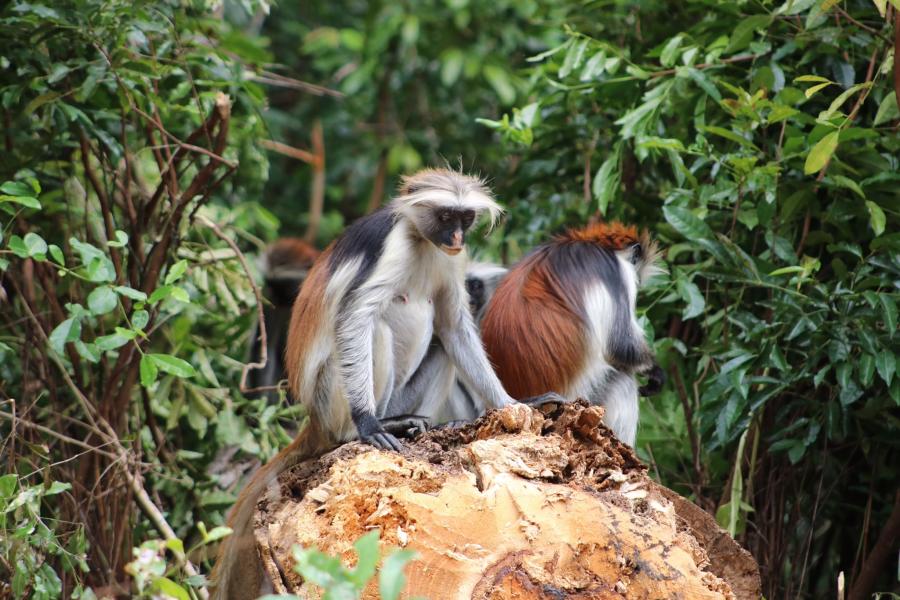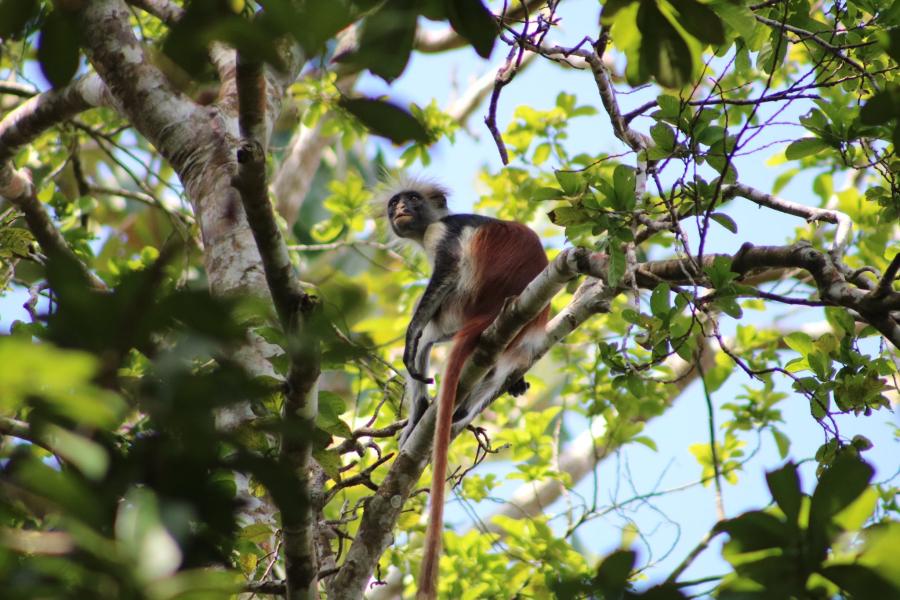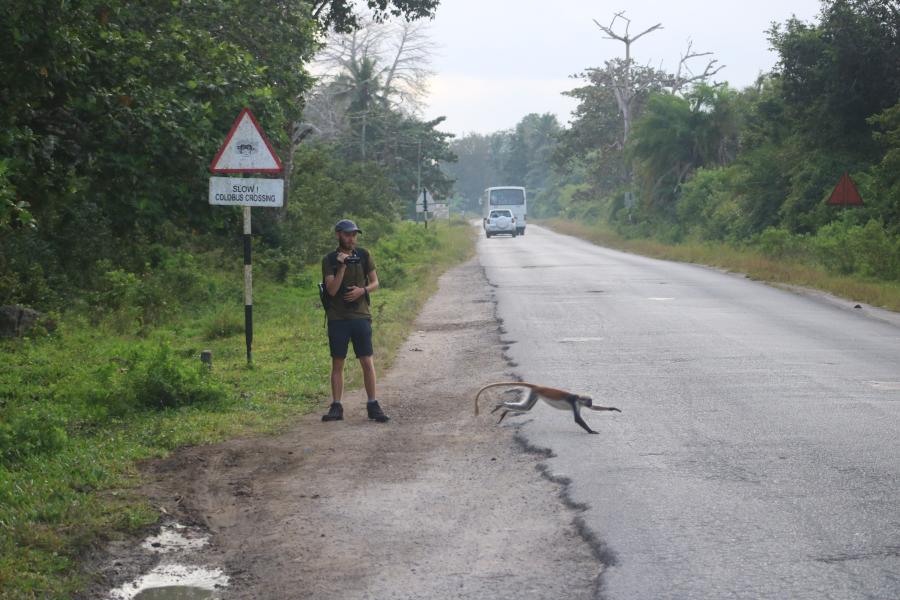One of the many threats that are faced by primates living in increasingly fragmented habitats is the risk of being killed by vehicles on roads. Studies of primate roadkill are rarely able to estimate the precise impact that road mortality might have on a population.
In a new study published in Oryx – The International Journal of Conservation, primatologists from Bangor University, in collaboration with National Park managers from Zanzibar and the Wildlife Conservation Society (WCS), assessed the threat posed by roads to one of the rarest primates in Africa – the Zanzibar red colobus, Piliocolobus kirkii.
By analysing four years of reports on roadkill, collected at Jozani-Chwaka Bay National Park, Zanzibar, the new study showed that a colobus dies on the road approximately every six weeks. This adds up to an estimated annual mortality of about 3% of the monkeys living in seven groups known to cross this road or almost 2% of the monkeys living in the 18 groups that live near enough the road they might occasionally cross it.
Bangor University primatologist and Director of the Zanzibar Red Colobus Project, Dr Alexander Georgiev was senior author of this study.
Zanzibar red colobus monkeys



Cars are not selective in the animals they kill
He said:
“While 3% annual mortality may not seem too high, this mortality rate is within the range experienced by primates in general from natural predation. Unlike natural predators, however, cars are not selective in the animals they kill. This means that while natural predators may target the very young and old more often, cars are equally likely to kill reproductively active young adults, who would contribute the most to population growth. And this may be a problem.”
By comparing the records of roadkill from 2016 – 2019 to estimates of colobus mortality on the road from the 1990s, this study also revealed the drastic reduction of colobus deaths following the installation of four speedbumps along the stretch of road where colobus crossed most frequently.
Harry Olgun, now a PhD student at the University’s School of Natural Sciences, led this study as part of his Masters research on the road ecology of the Zanzibar red colobus:
Harry says:
“After the road at Jozani was surfaced and before the speedbumps were installed, a colobus was reported to have been killed every 2 – 3 weeks, resulting in perhaps about 12 – 17% annual mortality, according to one estimate. The recent data show that speedbumps have made a huge difference for the safety of the colobus. Adding more speedbumps would help reduce the risk further.”
Director of Species Conservation & Science (Africa) at WCS who led the first country-wide census of the Zanzibar red colobus a few years ago and is a co-author on this study, Dr Tim Davenport said:
“As tourism grows in Zanzibar and habitat continues to shrink, using science to quantify and solve conservation problems has never been so important. Understanding the impact of vehicles on wildlife within a park, and implementing practical solutions is exactly what we as conservationists should be doing.”





